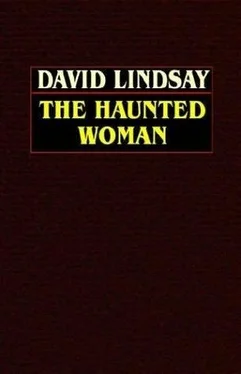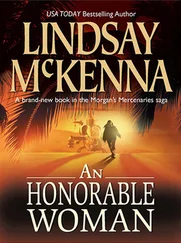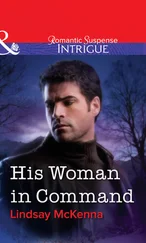David Lindsay - The Haunted Woman
Здесь есть возможность читать онлайн «David Lindsay - The Haunted Woman» весь текст электронной книги совершенно бесплатно (целиком полную версию без сокращений). В некоторых случаях можно слушать аудио, скачать через торрент в формате fb2 и присутствует краткое содержание. Жанр: Фантастика и фэнтези, на английском языке. Описание произведения, (предисловие) а так же отзывы посетителей доступны на портале библиотеки ЛибКат.
- Название:The Haunted Woman
- Автор:
- Жанр:
- Год:неизвестен
- ISBN:нет данных
- Рейтинг книги:3 / 5. Голосов: 1
-
Избранное:Добавить в избранное
- Отзывы:
-
Ваша оценка:
- 60
- 1
- 2
- 3
- 4
- 5
The Haunted Woman: краткое содержание, описание и аннотация
Предлагаем к чтению аннотацию, описание, краткое содержание или предисловие (зависит от того, что написал сам автор книги «The Haunted Woman»). Если вы не нашли необходимую информацию о книге — напишите в комментариях, мы постараемся отыскать её.
The Haunted Woman — читать онлайн бесплатно полную книгу (весь текст) целиком
Ниже представлен текст книги, разбитый по страницам. Система сохранения места последней прочитанной страницы, позволяет с удобством читать онлайн бесплатно книгу «The Haunted Woman», без необходимости каждый раз заново искать на чём Вы остановились. Поставьте закладку, и сможете в любой момент перейти на страницу, на которой закончили чтение.
Интервал:
Закладка:
"What was that?" demanded Judge at last.
"It reopens everything," replied Isbel.
"What do you mean?"
"It looks as if they do not mean to leave us alone. We are not to be allowed to go back, so we must go on. So be it! I am content."
"I don't understand you."
"I think you do, but it doesn't matter."
"I must ask you to speak more clearly, Miss Loment."
"It is not what I say, or what I do, but what is being decided for us. Mrs. Richborough was quite right-we must come here again to-morrow."
"Please take me outside," murmured the widow weakly. Judge at once moved to her assistance, but the girl stepped in between.
"Wait a minute!…" She faced Judge. "Do you think things can stop here? Have you no manhood at all? What do you imagine it all means?"
"I must refuse to take the responsibility of inviting you to this house again, Miss Loment." He attempted to speak with firmness but his voice trembled. "If we go on-as you call it-nothing but unpleasantness awaits us; that is manifest. In the meantime, we ought to hurry home as fast as possible. She is seriously unwell."
Mrs. Richborough really looked ghastly. He hastily produced his flask again, which this time she did not refuse. After swallowing a portion of the contents she felt better.
"I shall be quite well in the morning, Mr. Judge," she managed to say the next minute. "Perhaps there will be no great pleasure in coming here again, but we have all a duty to perform. Miss Loment's whole future happiness may be involved."
He eyed her sternly. "What makes you say that?"
"I am neither more intelligent than you, Mr. Judge, not more enlightened; there is not the slightest necessity for me to explain my words. I insist upon our all coming here to-morrow morning."
"You insist?"
"That's what I said. I will not consent to leave things in their present uncertainty. I also am implicated in a certain degree. If you really refuse, I shall have to consider where my further duty lies."
"That is plain enough language, I think, Mr. Judge," said Isbel, dryly. "You had better accept. It is the smaller of two evils."
Judge looked at her, but made no reply. He offered his arm to Mrs. Richborough, and she at last got up from her chair.
They quitted the hall. The two women took their places in the car. After locking the house door, Judge approached Isbel to ascertain her wishes with regard to being set down. At her request he consulted his time-table to discover if there were a convenient train from Shoreham. He found one which would not involve an unreasonable detention at the station, and it was arranged that she should alight there.
He was then about to leave her, to take his own seat, when she pulled quietly at his sleeve.
"What are you feeling?" she asked in a low voice.
"You must know."
"Tell me one thing-you haven't altered towards me?"
"No, I haven't altered."
"You have been so cold. You don't wish to break off our…friendship?"
Judge worked his jaw, pouched his mouth, and looked away.
"No, I don't wish it; but perhaps it will be necessary."
"You are made of stone, I think. But I'm coming here to-morrow."
"Very well-if it can be arranged. I strongly doubt whether she will be fit."
"And if she isn't?"
"That is a question which answers itself, Miss Loment."
"I'm coming over to Worthing by the same train, in any case. Expect me…You don't altogether despise me, do you?"
" Hush!" …He nodded significantly towards Mrs. Richborough. "How could I?"
"Oh, she doesn't hear. Her eyes are closed. Then you will wait for me to-morrow?"
"Yes."
"With or without her, we must go…There's nothing else you wish to say to me now?"
"Nothing."
"You are sure?"
"Quite sure."
Isbel sighed, as she sank back on the cushioned seat. Two minutes later they started down the drive.
Chapter XVIII A CATASTROPHE
After a miserable, feverish night of tossing and turning, Isbel at last fell asleep in the early house of the morning. She awoke again at eight, and at once got up. She felt dull and stupid, was incapable if quickening her movements, her eyes gave her a sense of being sunk half-way in her head. So sluggish was her blood that whatever she chanced to look at seemed to possess the power of detaining her gaze for an indefinite period, though all the time she was not really seeing it. To crown all, she had a gnawing toothache. She was deeply depressed.
She dared not think of Judge, yet all her preparations were made with the single view of journeying to Worthing that morning immediately after breakfast. What was to come of her visit, she did not know. Perhaps nothing at all; perhaps it might be the beginning of a new life.
After dressing, and before going downstairs, she stood awhile at the window. It was a still grey, dismal morning, which threatened to turn to for or fine rain. It was neither cold nor warm. She contemplated the engagement-ring on her finger, playing with it, as she smiled queerly. It was a pretty toy, and all her friends were very pleased with her for wearing it, but…supposing she was not destined to wear it any longer? Who could tell what this day was appointed to bring forth, whether for good or for evil? What a quaint surprise for her little circle if it were to prove that, after all, she had rich, red blood in her veins, and not rose-water!
Oh, she did not know what she felt! It could not be passion. She was conscious of no thrill, but, on the contrary, was thoroughly cold, dull, and despondent. But neither was she playing a part. Something called to her, and that silent voice was irresistible. It was something in that house… It was like the call of a drug; she was a drug-maniac…But why Judge? And why that ring yesterday? Could it be passion?…A passion which kept flaming up, and slumbering again?…
Each following day she found it harder to keep away from him. It was not his person, it was not his intellect, it was not his character; it could not be compatibility…Then what was it? What was this subtle attraction which was proving so increasingly overwhelming? Was it that, underneath person, intellect, character, there was something else-something which never came to the surface, but disclosed itself only to the something else in her? And was all love of this nature, or was it exceptional, prodigious?…
Whom to ask? Who loved nowadays? Betrothals and marriages she saw all around her, but if it wasn't money, it was sexual admiration-she could see nothing else. Might not that secret, incomprehensible impulse which drew her to him be more worthy of the name of love than these despicable physical infatuations of worldly men and women?…
At ten o'clock she left the hotel, procured a taxi on the front, and within a quarter of an hour was standing inside the booking-hall at Hove Station.
It was not yet half-past eleven as she mounted the steps of the Mertropole. She swept through the door, and approached the office window, assuming an air of hauteur which was contradicted by the trembling of her hands, as she fumbled in her bag for her card-case. Producing a card, she passed it over the counter to the lady clerk.
"Will you please have that sent up to Mrs. Richborough?"
The clerk looked at the card, and at her. She said nothing, but went to consul with someone else, who was out of sight; Isbel could hear them whispering together. Presently the girl came back, and requested her to accompany her to another room, adjoining the office. Isbel did so. She was begged to sit down, and then left to her own society, the door being closed upon her. It was all very solemn and mysterious.
Читать дальшеИнтервал:
Закладка:
Похожие книги на «The Haunted Woman»
Представляем Вашему вниманию похожие книги на «The Haunted Woman» списком для выбора. Мы отобрали схожую по названию и смыслу литературу в надежде предоставить читателям больше вариантов отыскать новые, интересные, ещё непрочитанные произведения.
Обсуждение, отзывы о книге «The Haunted Woman» и просто собственные мнения читателей. Оставьте ваши комментарии, напишите, что Вы думаете о произведении, его смысле или главных героях. Укажите что конкретно понравилось, а что нет, и почему Вы так считаете.












